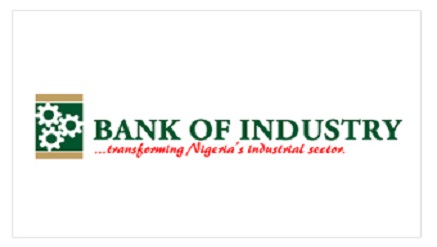E-Financial
PoS Transactions Hit N35Bn in May

Transactions over Point of Sale terminal (PoS) across the country recorded 49 percent rise over the past year, suggesting a growing acceptance of the use of online payments, Nigeria CommunicationsWeek can now reveal.
According to report exclusively gathered from National Central Switch (NCS) being operated by Nigeria Inter-Bank Settlement System (NIBSS) the Payments Terminal Service Aggregator (PTSA) for the industry, the value of transactions recorded 49 percent increase from N24 billion in the June 2014 to N35 billion as at the end of May, 2015.
Also, the volume of transaction on the machine stood at 1.6 million in June 2014, while in May 2015 it increased to 2.7 million representing 60 percent increase.
Reacting to this increase, Tunde Ogungbade, managing director, Global Accelerex, a PoS terminal services provider, attributed the increase to Central Bank of Nigeria (CBN) extension of cashless initiative across the federation.
“We anticipated more and believe that once other policies, such as those that promote cash deposits and withdrawals are rescinded, more consumers and merchants will move towards cashless commence which will lead to more growth.
In addition, merchants and consumers alike who have benefited from the impact of this convenience with business and lifestyle in Lagos, have evangelized such benefits to trading partners outside Lagos, further driving momentum. Major growth will be in urbanized commercial centers outside Lagos in the short run, but eventually, consumer demands will push adoption into the hinterland so I will not be surprised to see PoS terminals in the rural areas in the next 12-24 months,” he added.
Agada Apochi, managing director, Unified Payments, advocated the use of value added tax to encourage the use of electronic channels for payments.
According to him, government can also do a lot by creating the right incentives for adoption of e-payments.
He said that if government offers tax incentives for e-payments, it will be an effective tool to encourage a cashless culture.
That does not mean lower tax collection by government. Rather, government tax collection will increase.
For instance, if government were to offer 50% incentive on Value Added Tax for payments made electronically, government tax collection could increase by several multiples. 2.5% VAT on N100 million transactions is higher than 5% VAT on transactions of N10 million.
Currently, many transactions are not tracked because of cash payments and that is to the disadvantage of government.
Mrs. Regha Onajite, chief executive officer, Electronic Payment Providers Association of Nigeria (EPPAN) said: “the motivation for adoption for consumers is the convenience and security, since there is no compulsion to adopt by the way of penalty for at least the next few months. But, hopefully as people begin to align themselves with the benefits of electronic payment we should gradually see a hundred percent increase in the next one year,” she added.
E-Financial
CBN Expresses Concern Over Foreign Investments in Nigeria Fintechs

The Central Bank of Nigeria in its 2025 Fintech Policy Insight Report, has raised concern over Nigeria’s fintech sector heavily dependent on foreign investment, exposing it to swings in global markets.

The report said the sector has shown resilience despite global economic pressures, but warned that reliance on external capital leaves it vulnerable to market fluctuations.
It would be recalled that startups in the country raised $520m in equity funding in 2024, down from about $747m in 2019, when Nigeria captured roughly 37 per cent of all African startup investment.
This performance, amid significant global macroeconomic gyrations, underscores Nigeria’s position as a key hub for financial innovation. The sharp rise in interest rates in advanced economies during 2022 contributed to a slowdown in venture capital funding.
“These dynamics highlight the importance of developing domestic funding avenues, such as leveraging Nigeria’s capital markets, to reduce currency risk and sustain fintech growth,” the apex bank stated.
Olayemi Cardoso, CBN Governor, said Nigeria is undergoing a rapid and significant financial evolution. Over the past decade, the nation’s fintech landscape has grown from a handful of startups into one of Africa’s most vibrant innovation ecosystems.
“Even amid global economic headwinds, Nigerian fintech firms continued to attract investment and drive change. Today, with improved stability of our currency and domestic economy, it is clearer than ever that financial innovation can advance inclusion at scale,” the executive commented on the report.
In addition to funding, the central bank underscored Nigeria’s continued leadership in digital financial infrastructure. More than 25 per cent of all electronic transactions in Africa’s most populous nation are processed via real-time payment channels, with close to 11 billion transactions processed in 2024, up from five billion in 2022. The report described Nigeria’s instant payments platform, NIBSS NIP, as among the most mature and widely adopted globally.
The report also mentioned the need to strengthen system integrity and reputation, pointing to compliance reforms, anti-money laundering supervision, and consumer protection measures as key priorities for sustaining investor confidence.
By focusing on domestic funding, regulatory modernisation, and innovation infrastructure, the CBN aims to position Nigeria not only as a fintech front-runner but also as a rule-setter whose regulatory lessons are relevant to peer emerging and high-growth economies globally, the central bank said.
Stakeholders surveyed by the CBN also cited compliance costs as a significant challenge to innovation. According to the report, 87.5 per cent of respondents said that the cost of meeting regulatory and risk requirements significantly impacts their capacity to innovate, while delays in product approvals and regulatory timelines also remain major bottlenecks.
The report noted that 62.5 per cent of fintech firms plan to expand regionally, and there is strong support for regulatory pass-porting frameworks to enable compliant expansion into other African markets. However, the CBN warns that such cross-border growth requires a stable funding base and coordinated regulation.
E-Financial
UBA’s Easy and Instant Account Opening Thrills Returnee

After a few years abroad, I returned to Nigeria and faced a dilemma. Let me tell you all about it.

UBA
A few days ago, I was dragging my luggage through Murtala Muhammed International Airport. Everything felt bright and beautiful. Not necessarily in aesthetics, but in the vibrant colours, sounds, and energy all around. After three intensive years in the UK, I was finally back home. Ready for the hustle and bustle of Lagos life, and yes, the comfort of my parents’ home.
The plan was simple. Settle down and get my life on track. I’d sorted the job, and I had my person. But then came my dilemma. Money!. This doesn’t mean I was short of it or had too much of it. The real issue is where to actually keep and manage it in this country with daily dramatic happenings. With just two weeks left before I resumed at my new workplace, I had no time for long queues, endless paperwork, or the classic “Nigeria bank stress.” So, I needed an account, and I needed it fast.
So I turned to my best friend, Google, and typed, “Instant account opening in Nigeria.”
In less than a second, I was redirected to the United Bank for Africa instant account opening portal. A few taps later, and I had a fully functional account. Just like that. I could receive my funds, transfer my funds, and start building my financial life here again.
In less than a second, I was redirected to the United Bank for Africa instant account opening portal. A few taps later, and I had a fully functional account. Just like that. I could receive my funds, transfer my funds, and start building my financial life here again. Talk about ease, and this beautiful experience truly exemplified that definition
I was genuinely amazed. It felt too easy, almost suspiciously easy. But it was real, I mean, really soft like they were just thinking all about me while developing this new feature.
If you’re like me and pressed for time, avoiding unnecessary stress, or just ready to sort your finances without the hassle, consider this your sign.
UBA’s instant account opening is a game-changer. No queues to cut into your precious time. Just you and your phone, minutes away from being banked.
Get started here: https://aop.ubagroup.com
Trust me, if I could do it between unpacking and settling in, you can do it too. Your future self will thank you.
E-Financial
BOI Secures CBN Nod for Sharia Banking, Unlocks Ethical Funding Boom

Bank of Industry (BOI) has received Central Bank of Nigeria (CBN) approval to launch a Non-Interest Banking (NIB) Window, expanding ethical financing for underserved businesses nationwide.

BOI
The move positions BOI to mobilise Sharia-compliant funds, finance assets and raw materials without interest, and target MSMEs plus high-impact sectors previously sidelined by conventional loans.
Divisional Head of Public Relations, Theodora Amechi, said the window aligns BOI with social goals, boosting real economy support and sustainable industrial growth.
MD/CEO Dr. Olasupo Olusi hailed it as a “pivotal moment,” enabling the bank to serve faith-sensitive enterprises shunning riba-based loans.
Analysts see it as CBN’s vote of confidence in BOI’s governance, set to spur innovation and inclusive financing for Nigeria’s ethical business segments.
Established in 1959 as Nigeria’s top Development Finance Institution, BOI now strengthens its drive for broad-based economic transformation.

 General News2 days ago
General News2 days agoGlobacom Donates ₦1Bn to Lagos State Security Trust Fund

 Telecom2 days ago
Telecom2 days agoAirtel Nigeria Commits to Upgrade of its Network Infrastructure for Improved Quality of Service

 E-Business2 days ago
E-Business2 days agoPwC Reveals AI Scaling Gap Slows Africa’s Digital Transformation

 News2 days ago
News2 days agoCIoD, NIPSS Partner to Deepen Governance, Leadership Standards

 News2 days ago
News2 days agoNRS Chairman Outlines Ways Nigeria can Move from Potential to Economic Prosperity

 E-Financial2 days ago
E-Financial2 days agoEcobank Profit Jumps 29 Percent to N950Bn

 General News2 days ago
General News2 days agoWIEG to host Nigeria’s first International Investment Summit in Lagos

 News2 days ago
News2 days agoOrya, Ex-NEXIM MD Jailed 490 Years for N2.4Bn Fraud



























